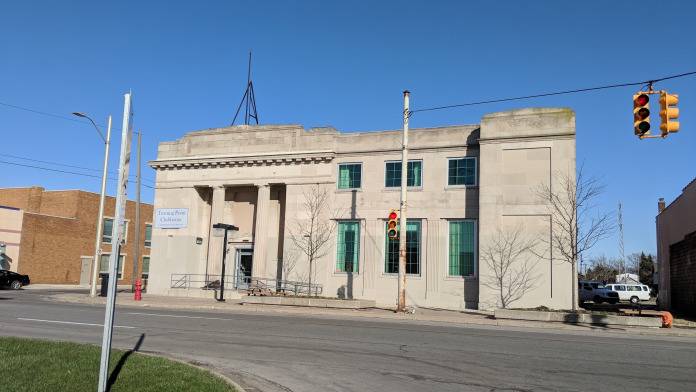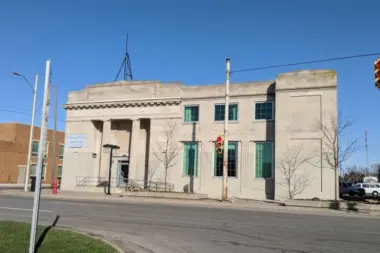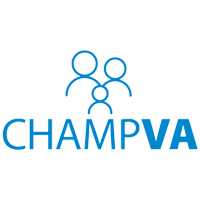About Hegira Health — Turning Point Clubhouse
Hegira Health’s Turning Point Clubhouse is a psychosocial rehabilitation program for adults with serious mental illness. You can find it in Lincoln Park, Michigan. They may also accept people with substance use disorder and there are addiction-specific substance use disorder (SUD) services also provided in Hegira Health’s network.
What makes this location so interesting is the setting: it’s a casual, non clinical atmosphere that promotes socialization. Participants work to build skills through daily routines, working both alone and together.
Anyone who qualifies can join the clubhouse.
Practical Skill Building
The clubhouse is like a shared living residence where each member participates in daily tasks to keep it operating. These tasks range from cleaning to food preparation and service. Each one gives you the chance to develop your skills to support your long term goals.
It’s also a great way to make new connections. You’ll want to build a support network to reinforce your recovery. Here you’ll be working alongside others facing similar challenges in their lives, and you may find it easier to bond with them due to your shared mental health and addiction experiences.
Work Toward Your Own Goals
Though you’ll be participating in a group environment, each client pursues individual goals at this location. While you’re building your skills you can focus on moving forward in your education or securing a job, just to name two examples. Of course, the clubhouse can also serve simply as a social outlet if that’s what you want. You can make the most of the space and experience however you want.
SUD Care at Hegira
If you’re looking for dedicated substance use disorder care, check out Hegira’s Oakdale Recovery Center in Canton. There you’ll find multiple levels of care to fit your needs as well as some specialty services, like court services and parenting support. They can also make referrals to community resources, including other providers.
Latest Reviews
Rehab Score
Gallery


Accepted Insurance

Other Forms of Payment
Medicaid is a state based program that helps lower-income individuals and families pay for healthcare. Medicaid covers addiction treatment so those enrolled can use their coverage to pay for rehab. When a program accepts Medicaid the client often pays very little or nothing out of their own pocket.
Private insurance refers to any kind of healthcare coverage that isn't from the state or federal government. This includes individual and family plans offered by an employer or purchased from the Insurance Marketplace. Every plan will have different requirements and out of pocket costs so be sure to get the full details before you start treatment.
Self-pay involves paying for treatment out of your own pocket. You can use savings or credit, get a personal loan, or receive help from family and friends to fund your treatment. If you don't have insurance or your insurance plan doesn't cover a specific program, self-pay can help ensure you still get the care you need.
Medicare is a federal program that provides health insurance for those 65 and older. It also serves people under 65 with chronic and disabling health challenges. To use Medicare for addiction treatment you need to find a program that accepts Medicare and is in network with your plan. Out of pocket costs and preauthorization requirements vary, so always check with your provider.
Military members, veterans, and eligible dependents have access to specific insurance programs that help them get the care they need. TRICARE and VA insurance can help you access low cost or no cost addiction and mental health treatment. Programs that accept military insurance often have targeted treatment focused on the unique challenges military members, veterans, and their families face.
Addiction Treatments
Levels of Care
Outpatient counseling services are available for adults, teens and children. They offer the option of individual, family, or group counseling. Outpatient counseling enhances an individual’s ability to cope with life stress, manage their illness and make productive life choices. Together with a therapist a patient will design a treatment plan and establish recovery and wellness goals. Your therapist will recommend frequency and duration of counseling session.
Intensive Outpatient Programs (IOP) are for those who want or need a very structured treatment program but who also wish to live at home and continue with certain responsibilities (such as work or school). IOP substance abuse treatment programs vary in duration and intensity, and certain outpatient rehab centers will offer individualized treatment programs.
Your road to wellness continues even after you reach your recovery goals. They offer a variety of community based programs and services that help individuals maintain wellness. Their education and employment programs provide participants the support they need to further their education and secure meaningful employment. In addition, their Turning Point Clubhouse, a psychosocial rehabilitation program, provides members with a safe, supportive environment to develop life management and transitional employment skills.
Treatments
Dual diagnosis outpatient counseling services are available to adults and teens that have both a mental health and substance use disorder diagnosis. A treatment plan will be designed to reach recovery and wellness goals. Services include psychiatric evaluations; nursing services; medication review and monitoring; and post hospital and aftercare treatment.
Mental health rehabs focus on helping individuals recover from mental illnesses like bipolar disorder, clinical depression, anxiety disorders, schizophrenia, and more. Mental health professionals at these facilities are trained to understand and treat mental health issues, both in individual and group settings.
Programs
Adult rehab programs include therapies tailored to each client's specific needs, goals, and recovery progress. They are tailored to the specific challenges adult clients may face, including family and work pressures and commitments. From inpatient and residential treatment to various levels of outpatient services, there are many options available. Some facilities also help adults work through co-occurring conditions, like anxiety, that can accompany addiction.
Young adulthood can be an exciting, yet difficult, time of transition. Individuals in their late teens to mid-20s face unique stressors related to school, jobs, families, and social circles, which can lead to a rise in substance use. Rehab centers with dedicated young adult programs will include activities and amenities that cater to this age group, with an emphasis on specialized counseling, peer socialization, and ongoing aftercare.
Clinical Services
Research clearly demonstrates that recovery is far more successful and sustainable when loved ones like family members participate in rehab and substance abuse treatment. Genetic factors may be at play when it comes to drug and alcohol addiction, as well as mental health issues. Family dynamics often play a critical role in addiction triggers, and if properly educated, family members can be a strong source of support when it comes to rehabilitation.
Group therapy is any therapeutic work that happens in a group (not one-on-one). There are a number of different group therapy modalities, including support groups, experiential therapy, psycho-education, and more. Group therapy involves treatment as well as processing interaction between group members.
In individual therapy, a patient meets one-on-one with a trained psychologist or counselor. Therapy is a pivotal part of effective substance abuse treatment, as it often covers root causes of addiction, including challenges faced by the patient in their social, family, and work/school life.
Life skills trainings involve all the skills a person must have in order to function successfully in the world. These include time management, career guidance, money management, and effective communication. Truly successful addiction recovery is based on the ability to not only live substance-free, but to thrive. Life skills teaches the practical necessities of functioning in society, which sets clients up for success in life, and therefore sobriety.
Trauma therapy addresses traumatic incidents from a client's past that are likely affecting their present-day experience. Trauma is often one of the primary triggers and potential causes of addiction, and can stem from child sexual abuse, domestic violence, having a parent with a mental illness, losing one or both parents at a young age, teenage or adult sexual assault, or any number of other factors. The purpose of trauma therapy is to allow a patient to process trauma and move through and past it, with the help of trained and compassionate mental health professionals.
Amenities
-
Residential Setting
-
Private Setting
Staff & Accreditations
Staff
Carol Zuniga
CEO
Edward L. Forry
President
Andrew Gilroy
CFO
Michael Wunder
CIO
Susan Kozak
COO
Todd Harrison
Chief Human Resources Officer
Timothy Chapman, MD, MBA
Medical Director
Jill Blackson
Sr. Clinical Director
Denise Norman, MSA, RHIA
Sr. Director, Quality and Corporate Compliance
Accreditations

The Joint Commission, formerly known as JCAHO, is a nonprofit organization that accredits rehab organizations and programs. Founded in 1951, the Joint Commision's mission is to improve the quality of patient care and demonstrating the quality of patient care.
Joint Commission Accreditation: Yes
Contact Information
1605 Fort Street
Lincoln Park, MI 48146










